In the field of development work, where resources are often limited and the stakes are high, every intervention must be carefully designed to create meaningful and lasting change. At the Research Center for Development Interventions (ReCDI), we champion an evidence-based approach to guide our projects and programs. By grounding our work in data, research, and measurable results, we ensure that our interventions are both effective and sustainable. Here’s why evidence-based methods are central to our mission and how they benefit the communities we serve.
What Does “Evidence-Based” Mean in Development Work?
An evidence-based approach means using reliable data and research findings to inform decisions at every stage of a project—planning, implementation, and evaluation. Rather than relying on assumptions or one-size-fits-all solutions, we analyze specific community needs and apply proven methods tailored to each situation. By focusing on evidence, we create a roadmap that increases the likelihood of successful outcomes and minimizes potential risks.
The Benefits of Evidence-Based Approaches
Enhanced Program Effectiveness
Evidence-based methods help us identify which interventions have the best chance of success. For example, when planning a health initiative, we look at studies and statistics to understand the key health challenges in a community—whether it’s access to healthcare, sanitation, or nutrition. By basing our projects on facts and trends, we maximize impact and address the root causes of issues, not just the symptoms.Efficient Use of Resources
In development work, resources like time, funding, and manpower are limited. Evidence-based approaches allow us to allocate resources strategically, ensuring that every effort yields the greatest possible benefit. For instance, if research indicates that certain agricultural practices can increase crop yields, we prioritize training farmers in these techniques, leading to more food security and economic stability in the community.Accountability and Transparency
By relying on data and measurable outcomes, evidence-based approaches promote transparency and accountability. Stakeholders—including donors, community members, and partner organizations—can see the logic behind our projects and track progress through concrete metrics. At ReCDI, we regularly evaluate our programs and make findings publicly available, fostering trust and demonstrating our commitment to effective, accountable development.Sustainable Impact
One of the most significant advantages of an evidence-based approach is its ability to create long-lasting change. Solutions grounded in research are more likely to withstand challenges and adapt to evolving needs. For example, through evidence-based environmental programs, we identify sustainable practices that communities can maintain independently, such as water conservation methods and organic farming techniques. This sustainability empowers communities to thrive beyond the scope of our interventions.
How ReCDI Applies Evidence-Based Methods in Our Work
Needs Assessments
Before launching any project, we conduct thorough needs assessments to gather data on local challenges, priorities, and resources. For example, in a recent project focused on economic development, we surveyed community members to understand income sources, market access, and skill gaps. This data shaped our programs to align with real community needs, leading to better outcomes and community satisfaction.Pilot Programs and Continuous Monitoring
We often begin with pilot programs, which allow us to test ideas on a smaller scale and adjust as needed. During implementation, we monitor progress and collect feedback. In one health initiative, we introduced a pilot of mobile health units to deliver medical services in remote areas. By collecting patient data and service usage information, we refined our approach, which ultimately led to a full-scale rollout of mobile units, now serving thousands.Impact Evaluation and Reporting
At the conclusion of each project, we conduct impact evaluations to measure success and identify areas for improvement. For example, in our environmental projects, we assess soil quality, water usage, and biodiversity before and after interventions. These evaluations help us determine which methods are most effective and provide critical insights for future projects.

